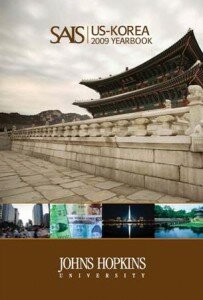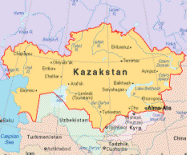 The U.S.-Korea Institute at SAIS and the Center for the National Interest are pleased to announce the release of the joint report “Northeast Asia in Afghanistan: Whose Silk Road?“, co-authored by Jae H. Ku, Drew Thompson, and Daniel Wertz.
The U.S.-Korea Institute at SAIS and the Center for the National Interest are pleased to announce the release of the joint report “Northeast Asia in Afghanistan: Whose Silk Road?“, co-authored by Jae H. Ku, Drew Thompson, and Daniel Wertz.
Stories Filed Under “Energy”
Report Release: Northeast Asia in Afghanistan
 The U.S.-Korea Institute at SAIS and the Center for the National Interest are pleased to announce the release of the joint report “Northeast Asia in Afghanistan: Whose Silk Road?“, co-authored by Jae H. Ku, Drew Thompson, and Daniel Wertz.
The U.S.-Korea Institute at SAIS and the Center for the National Interest are pleased to announce the release of the joint report “Northeast Asia in Afghanistan: Whose Silk Road?“, co-authored by Jae H. Ku, Drew Thompson, and Daniel Wertz.
USKI/CSIS Workshop on Nuclear Fuel Cycles and Nuclear Security
 The U.S.-Korea Institute at SAIS and the Proliferation Prevention Program at the Center for Strategic and International Studies (CSIS) hosted a workshop on nuclear fuel cycles and nuclear security on December 9-10, 2010 in Washington, DC. This workshop was funded by the Korea Atomic Energy Research Institute (KAERI).
The U.S.-Korea Institute at SAIS and the Proliferation Prevention Program at the Center for Strategic and International Studies (CSIS) hosted a workshop on nuclear fuel cycles and nuclear security on December 9-10, 2010 in Washington, DC. This workshop was funded by the Korea Atomic Energy Research Institute (KAERI).
The workshop provided an off-the-record forum to address three key areas of concern: nuclear fuel cycles, challenges for nuclear security from fuel cycle R&D, and multinational approaches to fuel cycle facilities. read more …
2009 SAIS U.S.-Korea Yearbook
 The U.S.-Korea Institute at SAIS annouces the release of the fourth edition of the SAIS U.S. -Korea Yearbook.
The U.S.-Korea Institute at SAIS annouces the release of the fourth edition of the SAIS U.S. -Korea Yearbook.
Each fall semester at SAIS, the Korea Studies Program offers the course, “The Two Koreas: Contemporary Research and Record,” where students prepare an in-depth report on an issue of importance to Korean affairs in that year. As part of their research, students make a one-week research trip to Seoul to test their ideas with experts and officials. The SAIS U.S.-Korea Yearbook is a compilation of these student papers.
Student authors include: Tze Chin “Alvin” Wong, Paul Elliott, Sogaku Miyamoto, Ian Howard, Kee Hoon Chung, Jason Park, Momoko Sato, Neil K. Shenai, Nick Borst, Naoko Aoki, Zander Lanfried, and Sarah Yun.
Download the 2009 SAIS U.S.-Korea Yearbook.
Working Paper Release: Economic Cooperation Between South Korea and Kazakhstan
 As 97 percent of South Korean energy comes from imports, Central Asia is a very important area for developing and securing foreign energy resources. Among the countries in Central Asia, Kazakhstan has shown the highest tangible economic development results. Moreover, Kazakhstan, compared to other Central Asian countries, has the richest natural resources, a superior economy size, and a relatively stable political situation that could increase the speed of political modernization. Kazakhstan is also leading the region in terms of market reforms. read more …
As 97 percent of South Korean energy comes from imports, Central Asia is a very important area for developing and securing foreign energy resources. Among the countries in Central Asia, Kazakhstan has shown the highest tangible economic development results. Moreover, Kazakhstan, compared to other Central Asian countries, has the richest natural resources, a superior economy size, and a relatively stable political situation that could increase the speed of political modernization. Kazakhstan is also leading the region in terms of market reforms. read more …

